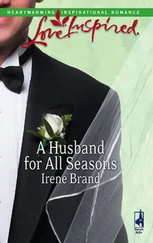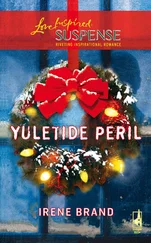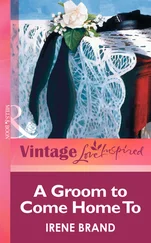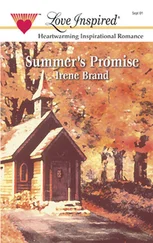“I made twenty thousand dollars yearly at my previous job. On that I lived in my own apartment, had a car and saved a little money.”
“We’ll double that amount until you see how much you need.”
Allison pulled at the collar of her blouse, feeling as if her breathing had been hampered. Forty thousand dollars a year! Her father had supported a wife and three children on less than that. Why would a single woman need so much?
“But about your living quarters,” Curnutt continued, “I had assumed that you would live in Harrison’s home, which is yours now.”
“Oh, yes, Allison, you must consider living there,” Celestine insisted. “It’s a wonderful house.”
“Didn’t you say it was a three-story home? I don’t need that much room, and wouldn’t the upkeep be expensive?”
He smiled, and she knew he was amused by her conservatism, but her parents had had no choice but to be conservative; otherwise they couldn’t have supported a family on one salary so Beatrice could stay home and take care of the children. Even with riches at her disposal, it was a habit she wouldn’t lose easily.
“I’m sure your uncle would be pleased with your attitude toward wealth, for he wasn’t a big spender himself, and you’re right, the house is expensive to maintain. Although Harrison didn’t make any stipulation whether you should sell or keep the house, I suggest that you live there for a period of time before you make the decision. It is a largc house, but the caretakers occupy the third floor and take care of cleaning and maintenance, so it shouldn’t be a burden to you.”
“Even sight unseen, I’m willing to take your advice, but I would like to see the house when it’s convenient for you to take me.”
He checked his watch and took his appointment book from his pocket. “We can go right now. I have a dinner appointment at six o’clock, but we have time.” Turning to Celestine, he said, “Please telephone Minerva that we’ll be there in fifteen minutes.”
The lawyer traveled on High Street until he turned left on Buttles, drove past Goodale Park to Neil Avenue, where he turned north again. The quiet atmosphere of the area and the Victorian homes on both sides of the street made Allison feel as if she had stepped back in time. Would the Brontë sisters wander out of one of the doors on their way to church? Perhaps Mary Todd Lincoln would be peering from a window, anxiously waiting for her tardy husband. Craning her neck to see each house they passed, Allison was impressed with the asymmetrical brick-and-stucco homes, many massed around a central tower or spire, marked by steeply pitched roofs and narrow arched windows accentuated by hood moldings.
Curnutt drove a couple of blocks before parking the car at street level. He pointed to a massive brick building.
“This surely isn’t it!”
“Harrison Page bought this house about twenty-five years ago. After his wife died, he devoted his time to decorating and furnishing the home as it would have been when it was first built. The house is yours now, and I hope you’ll be pleased with the results of his efforts. Shall we go in?”
“Allow me to sit here for a few minutes and take this all in. Yesterday I thought of a nursery rhyme about an old woman whose appearance was altered, and she kept saying, ‘Lawk a mercy on me, this is none of I!’ I don’t even feel like myself. Nor do I know my own mind. Am I grateful to Uncle Harrison for gifting me with all these material possessions, or should I resent his interference with a life-style that has been sufficient for twenty-four years? Ownership of this house is more daunting than ownership of the publishing company. I don’t know how I can cope with this change in my life.”
Curnutt gave Allison a fond look that she didn’t see, but he was pleased with her, and furthermore, he knew now that Page had made the right decision to convey his estate to this woman, although Curnutt had counseled against the move. In the few hours he had known Allison, he had observed the same qualities in her that had made Harrison Page a respected and wealthy man—determination, loyalty to duty, conservatism and intelligence. He silently thanked God that he had been given the privilege of introducing this young woman to a new world—one in which she would undoubtedly make mistakes, but also one in which he believed she would ultimately triumph.
Allison’s eager eyes took in every detail of the huge house. A brick pathway from the street traversed a small lawn, and two large marble urns stood beside the three stone steps that provided access to a wide porch with a crested roof supported by six round Ionic wooden columns. The porch was surrounded by a wooden railing sustained by elaborately turned balusters. Two slender junipers, their tops projecting above the porch roof, stood like sentries on each side of the steps, and groupings of low evergreens and shrubbery were arranged around their trunks.
The three-storied redbrick house was divided into three sections. On the left was a rounded turret crowned by a conical spire. The middle section was dominated at the second story by a curved leaded glass window in a floral design capped by a stone lintel, and to the right, uncovered by the porch, bay windows marked both the first- and second-floor levels. Several brick chimneys projected like sentinels from the steep gray slate roof. Such a home was worthy of a president or even a king; it couldn’t be hers.
Her eyes shining, she said, “It’s a beautiful building. I’m ready to go in now.”
With all the eagerness of a man playing Santa Claus, Curnutt opened the car door for Allison. Tingling with excitement, a broad smile lighting her face, Allison walked briskly up the steps and stopped before double walnut doors embellished by curvilinear floral designs in clear leaded glass. Above the doors was an oblong leaded window that matched the door panels. Curnutt reached around her and turned the old-fashioned doorbell.
As though she had been waiting, the right door was opened by a tall, angular woman with high cheekbones accentuated by steel gray hair pulled back and tightly wound into a small bun at her nape. Dressed as she was in a trim gray dress, she could easily have stepped out of the Victorian era.
“Welcome, come in,” she said in a pleasing voice that sounded as if she meant it. Behind her hovered a portly man dressed in a flannel shirt and denim overalls.
Allison and Curnutt stepped into the warm, high-ceilinged foyer, which Allison realized was larger than the living and dining room put together of her family’s house back in Chicago. Allison’s eyes were drawn immediately to the spiral stairway with graceful scrolled railings that terminated on a landing on the second floor. A brass chandelier with tiers of crystal pendants hung from a leaf-filigreed ceiling medallion. Burgundy carpeting covered the stair treads, and the foyer floor of darkly varnished hardwood was brightened with two Oriental rugs. The walls were a neutral tone of pale blue.
The foyer was long and narrow, with four steps at the rear of the hall leading to the kitchen area. To the left of the doorway was a massive walnut hall tree, with several hats suspended from the hangers. Facing them was a longcase clock that melodiously chimed the hour.
Sizing up every detail of the house, Allison hadn’t moved since she’d set foot in the hallway. She was brought out of her trance by a gentle tug on her arm.
“Allison, I want you to meet Adra and Minerva McRamey. They’re important fixtures in this house.”
Trying to shake the cobwebs from her head, Allison said, “I’m pleased to meet you. I apologize for being impolite. I’ve never been in this grand a house before.”
She shook hands with both of them, and Adra’s rosy face beamed at her.
Читать дальше












